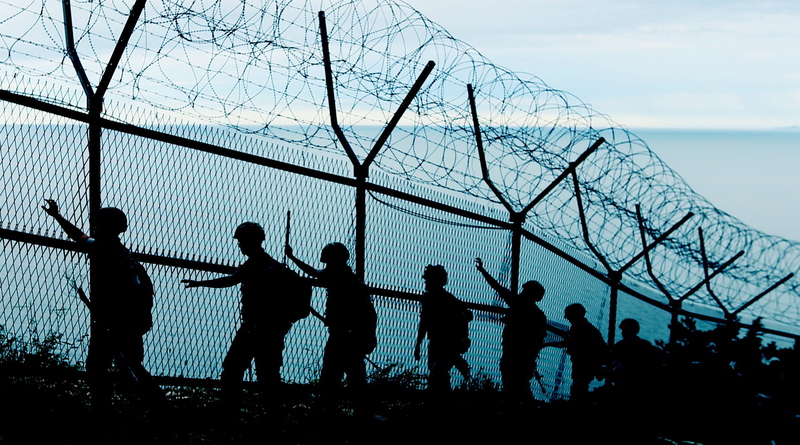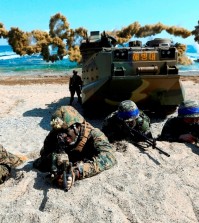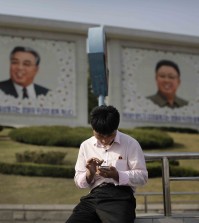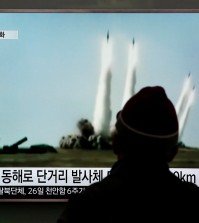- California Assembly OKs highest minimum wage in nation
- S. Korea unveils first graphic cigarette warnings
- US joins with South Korea, Japan in bid to deter North Korea
- LPGA golfer Chun In-gee finally back in action
- S. Korea won’t be top seed in final World Cup qualification round
- US men’s soccer misses 2nd straight Olympics
- US back on track in qualifying with 4-0 win over Guatemala
- High-intensity workout injuries spawn cottage industry
- CDC expands range of Zika mosquitoes into parts of Northeast
- Who knew? ‘The Walking Dead’ is helping families connect
65 N. Koreans cross sea, land borders to defect to South over 5 yrs

South Korean soldiers patrol along the coast of the western island of Yeonpyeong, South Korea. (Yonhap)
SEOUL, Sept. 8 (Yonhap) — A total of 65 North Koreans have crossed the tightly-patrolled land and sea borders with South Korea to defect to the capitalist country since 2010 with 15 of them breaking the borders undetected, a military report showed Tuesday.
The North Korean conscript who made it to a South Korean guard post near the eastern part of the military demarcation line (MDL) in June was among those who have crossed over, according to the Joint Chiefs of Staff’s report submitted to Rep. Shon In-choon of the ruling Saenuri Party.
The soldier was not detected until after he had crossed the heavily-fortified border, spent one night near the South Korean military outpost and turned himself in the next day.
The episode sharply stoked skepticism over the South Korean military’s border guarding after a similar case was reported in the eastern section of the border in 2012.
Fifteen of the total 65 defectors have crossed the borders without being caught by border guards before the defectors turned themselves in or civilians reported them, according to the report.
The number of defections through borders reached 10 in 2010 and increased to 39 in 2011 before sinking to 5 the next year.
The number plunged to 1 in 2013 before edging up to 6 last year, a downward trend attributable to tightened border security under North Korean leader Kim Jong-un, who took office in 2012.
Four defections have been reported so far this year.
Six of the 65 defectors chose the MDL frontline with the rest coming along the coasts or the Northern Limit Line, the de facto sea border, the report showed.
More than 1,000 North Koreans defected the communist country and came to the South every year in search of economic affluence and political freedom, but most of them arrive here by way of a third country.












![일본 사도광산 [서경덕 교수 제공. 재판매 및 DB 금지]](http://www.koreatimesus.com/wp-content/uploads/2024/07/PYH2024072610800050400_P4-copy-120x134.jpg)



Pingback: Tightening of DMZ Border Security Decreases Number of North Korean Defectors | ROK Drop